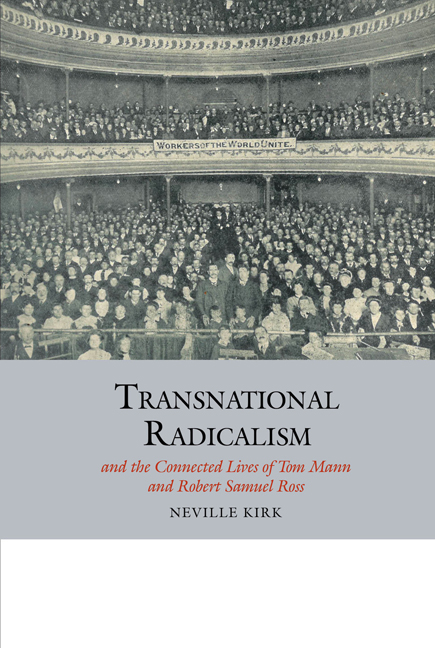Refine search
Actions for selected content:
13588 results in History of science and technology
7 - Bikini Postmortem, Part II
-
- Book:
- Bombing the Marshall Islands
- Published online:
- 09 August 2017
- Print publication:
- 26 July 2017, pp 132-151
-
- Chapter
- Export citation
5 - Monsters and Movements
-
- Book:
- Bombing the Marshall Islands
- Published online:
- 09 August 2017
- Print publication:
- 26 July 2017, pp 88-108
-
- Chapter
- Export citation
6 - Bikini Postmortem, Part I
-
- Book:
- Bombing the Marshall Islands
- Published online:
- 09 August 2017
- Print publication:
- 26 July 2017, pp 109-131
-
- Chapter
- Export citation
Appendix 1 - Ultimate Weapons
-
- Book:
- Bombing the Marshall Islands
- Published online:
- 09 August 2017
- Print publication:
- 26 July 2017, pp 163-203
-
- Chapter
- Export citation
Dedication
-
- Book:
- Bombing the Marshall Islands
- Published online:
- 09 August 2017
- Print publication:
- 26 July 2017, pp v-vi
-
- Chapter
- Export citation
Appendix 2 - Radiation Exposure, Dosage, and Its Biomedical Effects
-
- Book:
- Bombing the Marshall Islands
- Published online:
- 09 August 2017
- Print publication:
- 26 July 2017, pp 204-222
-
- Chapter
- Export citation
Epilogue
-
- Book:
- Bombing the Marshall Islands
- Published online:
- 09 August 2017
- Print publication:
- 26 July 2017, pp 152-162
-
- Chapter
- Export citation
Illustrations
-
- Book:
- Bombing the Marshall Islands
- Published online:
- 09 August 2017
- Print publication:
- 26 July 2017, pp viii-viii
-
- Chapter
- Export citation
Index
-
- Book:
- Bombing the Marshall Islands
- Published online:
- 09 August 2017
- Print publication:
- 26 July 2017, pp 231-240
-
- Chapter
- Export citation
Appendices
-
- Book:
- Bombing the Marshall Islands
- Published online:
- 09 August 2017
- Print publication:
- 26 July 2017, pp 163-222
-
- Chapter
- Export citation
Acknowledgments
-
- Book:
- Bombing the Marshall Islands
- Published online:
- 09 August 2017
- Print publication:
- 26 July 2017, pp ix-x
-
- Chapter
- Export citation
3 - Runaway Bomb
-
- Book:
- Bombing the Marshall Islands
- Published online:
- 09 August 2017
- Print publication:
- 26 July 2017, pp 50-66
-
- Chapter
- Export citation
Bibliography
-
- Book:
- Bombing the Marshall Islands
- Published online:
- 09 August 2017
- Print publication:
- 26 July 2017, pp 223-230
-
- Chapter
- Export citation
Copyright page
-
- Book:
- Bombing the Marshall Islands
- Published online:
- 09 August 2017
- Print publication:
- 26 July 2017, pp iv-iv
-
- Chapter
- Export citation
2 - The Coming of the “Super”
-
- Book:
- Bombing the Marshall Islands
- Published online:
- 09 August 2017
- Print publication:
- 26 July 2017, pp 31-49
-
- Chapter
- Export citation
1 - Operation Crossroads
-
- Book:
- Bombing the Marshall Islands
- Published online:
- 09 August 2017
- Print publication:
- 26 July 2017, pp 13-30
-
- Chapter
- Export citation
Contents
-
- Book:
- Bombing the Marshall Islands
- Published online:
- 09 August 2017
- Print publication:
- 26 July 2017, pp vii-vii
-
- Chapter
- Export citation
Introduction
-
- Book:
- Bombing the Marshall Islands
- Published online:
- 09 August 2017
- Print publication:
- 26 July 2017, pp 1-12
-
- Chapter
- Export citation
4 - The Victims of Castle Bravo
-
- Book:
- Bombing the Marshall Islands
- Published online:
- 09 August 2017
- Print publication:
- 26 July 2017, pp 67-87
-
- Chapter
- Export citation

Transnational Radicalism and the Connected Lives of Tom Mann and Robert Samuel Ross
-
- Published by:
- Liverpool University Press
- Published online:
- 25 July 2017
- Print publication:
- 25 July 2017
-
- Book
- Export citation
